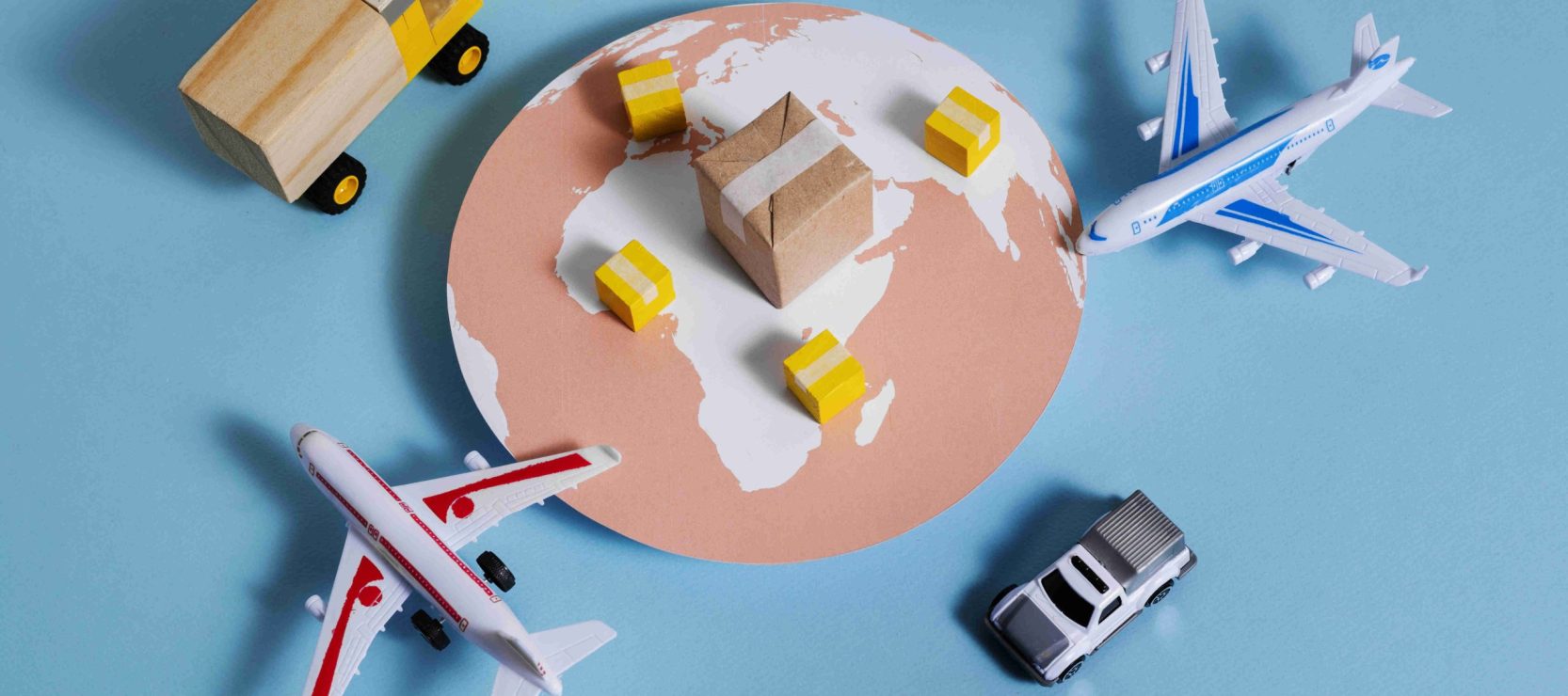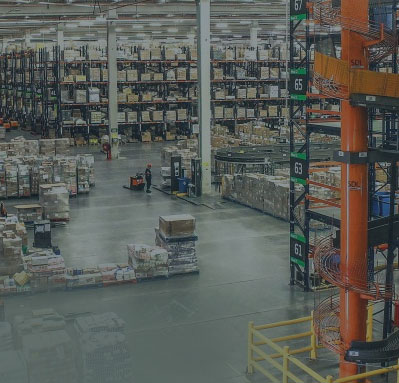The United Arab Emirates (UAE) is a significant trading hub in the Middle East, attracting businesses from all over the world due to its favorable tax policies and strategic location. However, to ensure the safety, security, and sustainability of the country, the UAE has implemented strict import and export restrictions. These regulations cover a broad range of goods, from food products to firearms, to safeguard public health, protect national security, and preserve cultural values. Additionally, the laws have evolved, with new regulations added in 2024 to address emerging global challenges. Below is a comprehensive guide to UAE’s import and export restrictions, incorporating the latest updates to help businesses stay compliant.
Key Important Restrictions in the UAE
The UAE government enforces stringent regulations on imported goods to ensure public safety, environmental protection, and alignment with cultural values. Key restrictions apply to items such as food and agricultural products, firearms, hazardous materials, and counterfeit goods.
Among the items prohibited from entering the UAE are:
- Controlled drugs and illicit substances
- Pirated media and counterfeit products
- Counterfeit currency
- Fireworks and explosives
- Electric vehicles from North Korea
- Objects associated with black magic, witchcraft, or sorcery
- Publications, artworks, and media that conflict with Islamic principles
- Gambling equipment and devices
In addition to these, the UAE has introduced restrictions on products that pose environmental and health risks. Single-use plastics, including bags, cutlery, and containers, are now tightly regulated or banned to promote sustainability. Synthetic nicotine products, which raise significant health concerns, are also subject to tighter controls. Moreover, personal care products containing microplastics, often found in exfoliants and cosmetics, have been prohibited due to their harmful impact on marine ecosystems.
These comprehensive regulations reflect the UAE’s commitment to safety, health, and environmental preservation, ensuring the country maintains high standards while protecting its cultural and natural heritage.
Food and Agricultural Product Regulations in the UAE
To safeguard public health and maintain the highest standards of food quality, the UAE enforces comprehensive regulations on the importation of food and agricultural products. These rules ensure that only safe, certified goods enter the country, supporting both consumer protection and environmental conservation. Meat, dairy, and other food products must come from approved suppliers and include official documentation, such as veterinary health certificates, to verify their safety and compliance with local standards. Additionally, certain agricultural imports, including seeds, tubers, and honeybees, require specific permits issued by the Ministry of Climate Change and Environment.
The importation of Genetically Modified Organisms (GMOs) is tightly controlled in the UAE. All food products containing GMOs must be clearly labeled to inform consumers. Recent regulatory updates in 2024 have expanded the scope of these rules, reinforcing the country’s commitment to transparency and food safety.
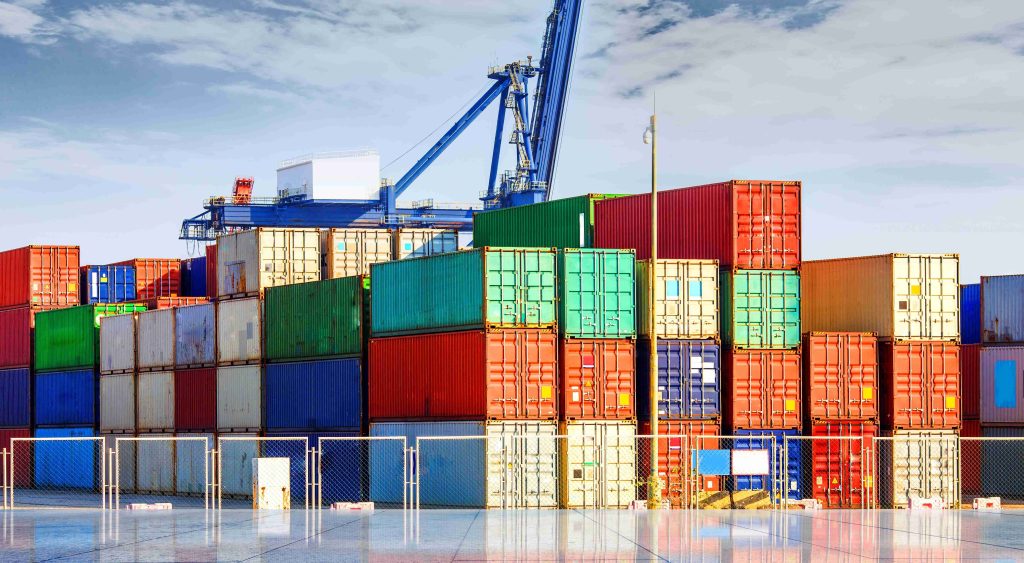
Prohibited and Restricted Food Products
Certain food and agricultural products face import and export restrictions due to their potential risks to public health, the environment, or national security. Staying informed about these restrictions is crucial for businesses and individuals to avoid penalties. The following items are either prohibited or heavily restricted for import into the UAE:
- Ivory (including raw ivory, ivory powder, and ivory waste)
- Mace (in all forms, including crushed or ground)
- Poppy seeds and related products (whether broken or unbroken)
- Hemp seeds and Indian hemp (fresh, dried, or powdered)
- Prepared betel (paan), excluding varieties containing tobacco
- Vegetable extracts from opium
- Cocoa leaf and poppy straw
- Hashish and other narcotic substances
- Synthetic nicotine products
- Single-use plastics, particularly those used in food packaging
- Personal care products containing microplastics (commonly found in certain cosmetic and exfoliating products)
These prohibitions reflect the UAE’s emphasis on public health, environmental responsibility, and adherence to international standards. Non-compliance with these regulations can result in hefty fines, product confiscation, and other legal consequences.
The UAE also limits the quantity of food individuals can import for personal use under Ministerial Resolution No. 14 of 2016. This regulation sets maximum thresholds for food items brought into the country for non-commercial purposes, further reinforcing the government’s focus on maintaining food safety. A detailed and updated list of restricted and prohibited items is available on the UAE Government Portal, providing essential information for anyone involved in importing or exporting food products.
By following these regulations, businesses can help maintain the high standards that the UAE demands, contributing to the country’s safety, sustainability, and overall well-being.
Restrictions and Bans on the Live Animal Industry
The UAE has implemented stringent regulations and restrictions on the live animal industry to ensure animal welfare, biodiversity conservation, and public health. The import, export, and trade of live animals are highly controlled, with specific restrictions and outright bans on certain species. These rules are enforced by several government bodies, including the Ministry of Climate Change and Environment (MOCCAE) and the UAE Customs Authority, to align with international standards and protect against the spread of diseases.
Regulated Species
The UAE places strict controls on the importation of live animals, particularly those that could pose environmental, health, or safety risks. Any live animal imports must be accompanied by veterinary certificates from the country of origin and pass quarantine inspections upon arrival. The following animal categories are subject to stringent restrictions:
- Pets (e.g., cats, dogs, birds): Must be imported with detailed vaccination records, including rabies vaccinations, and health certificates. Quarantine procedures may be required depending on the country of origin.
- Livestock (e.g., cattle, sheep, goats): Must meet health certification requirements, including veterinary certificates confirming the animals are free from infectious diseases such as foot-and-mouth disease or avian flu.
- Endangered species: The UAE is a signatory to the Convention on International Trade in Endangered Species of Wild Fauna and Flora (CITES), which regulates or bans the trade of endangered species. Animals listed under CITES Appendix I, such as certain reptiles, birds of prey, and big cats, cannot be traded or imported unless for exceptional circumstances like scientific research.
Banned Species
Certain species of animals are entirely banned from importation due to their potential impact on native ecosystems, public health, or safety concerns. These include:
- Exotic and wild animals: The trade and private ownership of wild or exotic animals such as lions, tigers, and chimpanzees are banned under Federal Law No. 22 of 2016. These species cannot be imported, bred, or sold, and violations of this law can result in heavy fines and imprisonment.
- Dangerous animals: Species that pose a direct threat to public safety, including venomous snakes and large predatory animals, are strictly prohibited from being imported or kept as pets.
- Diseased animals: Any animal diagnosed or suspected of having contagious diseases, such as rabies or avian flu, is barred from entry into the UAE to prevent outbreaks that could affect local livestock, pets, and human populations.
Regulations on Animal Welfare
The UAE government is committed to ensuring the welfare of animals, particularly in the live animal trade. To this end, strict guidelines are in place to safeguard animals from mistreatment during transport and trade:
- Transport and handling regulations: Animals imported into the UAE must be transported in compliance with international animal welfare standards. Shipping containers must ensure the comfort and safety of the animals, with appropriate ventilation, temperature control, and access to food and water.
- Quarantine and inspection: All live animals entering the UAE are subject to a mandatory quarantine period, where they are inspected for infectious diseases. Only after passing health inspections are animals released from quarantine.
- Banning cruel practices: The UAE prohibits the importation of animals that have been subjected to unethical or inhumane treatment, such as animals used for illegal hunting or those subjected to harmful breeding practices.
Protection of Native Species
In addition to regulating imported species, the UAE is focused on protecting its native wildlife. Several native species, such as the Arabian oryx and falcons, are protected under UAE law. Exporting these animals is either restricted or banned to prevent the depletion of local populations.
Penalties for Non-Compliance
Violating the UAE’s live animal import and export regulations can result in severe penalties, including hefty fines, imprisonment, and the confiscation of animals. Individuals and businesses involved in the live animal trade must ensure full compliance with both UAE laws and international conventions such as CITES.
To ensure compliance with these regulations, it is highly recommended to consult professional animal trade specialists and stay informed on the latest updates from the UAE Ministry of Climate Change and Environment.
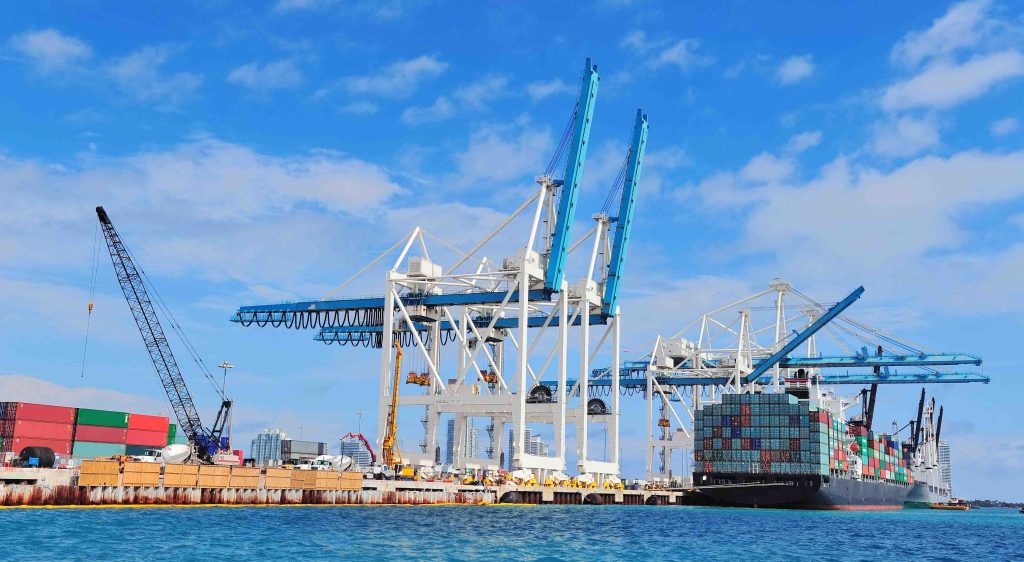
Restrictions and Bans on the Automotive Industry
The UAE automotive industry is subject to a range of regulations and restrictions designed to ensure vehicle safety, environmental protection, and compliance with international standards. These regulations govern the import, export, and trade of vehicles, auto parts, and related equipment. The UAE’s regulatory framework aims to safeguard public safety, reduce environmental impact, and ensure that vehicles on the road meet the latest standards for efficiency and emissions.
Vehicle Importation Regulations
The UAE has specific regulations regarding the importation of new and used vehicles, including compliance with local standards and documentation requirements:
- New vehicles: All new vehicles imported into the UAE must comply with the Gulf Cooperation Council (GCC) specifications for safety, emissions, and roadworthiness. These standards are aligned with international automotive standards and are regulated by the Emirates Authority for Standardization and Metrology (ESMA). Vehicles must also have a certificate of conformity to demonstrate compliance with these requirements.
- Used vehicles: The import of used vehicles is allowed, but restrictions apply. Generally, used vehicles older than five years are prohibited from being imported for road use in the UAE, except for classic or vintage cars, which may be exempt under certain conditions. Imported used cars must undergo stringent inspections to ensure they meet safety and emission standards.
- Electric and hybrid vehicles: The UAE encourages the import of electric and hybrid vehicles as part of its push toward sustainability and reduced carbon emissions. However, these vehicles must also comply with local safety and performance standards before being registered for road use.
Banned Vehicles and Auto Parts
To maintain safety and environmental standards, certain vehicles and auto parts are banned from importation or sale in the UAE:
- Salvaged and damaged vehicles: Importing vehicles that have been declared salvage, heavily damaged, or beyond repair is prohibited. This includes cars that have been involved in major accidents, floods, or fires. Importers must provide a clean title and certification confirming the vehicle’s condition.
- Non-compliant vehicles: Vehicles that do not meet the GCC specifications, particularly in terms of emissions and safety standards, cannot be imported. This includes vehicles with outdated safety features or emissions systems that do not comply with UAE regulations.
- Non-genuine or counterfeit auto parts: The UAE has strict bans on the import and sale of counterfeit or non-genuine auto parts. This includes fake parts that do not meet safety and quality standards. Importers of counterfeit parts can face severe penalties, including fines, imprisonment, and confiscation of goods. Vehicle owners using such parts risk voiding manufacturer warranties and compromising the safety of their vehicles.
Environmental and Emission Standards
As part of its efforts to reduce environmental impact, the UAE has implemented stringent emission standards for vehicles. These regulations are enforced by the Ministry of Climate Change and Environment and the ESMA:
- Fuel efficiency requirements: All vehicles, including petrol and diesel-powered ones, must meet fuel efficiency standards set by ESMA. These standards aim to reduce greenhouse gas emissions and fuel consumption in line with the UAE’s commitment to sustainability.
- Euro 4 and Euro 5 standards: New vehicles must comply with Euro 4 or Euro 5 emission standards, which set limits on carbon dioxide (CO2) emissions, nitrogen oxides (NOx), and particulate matter. Vehicles that do not meet these standards are banned from importation.
- Banned fuels: The import and sale of leaded petrol and other high-polluting fuels are prohibited in the UAE. The country has transitioned to unleaded petrol and other cleaner fuel alternatives to reduce the environmental impact of transportation.
Vehicle Scrappage and Recycling
The UAE has introduced initiatives to encourage the recycling of old and non-roadworthy vehicles:
- Vehicle scrappage: Vehicles that fail to meet safety or emission standards, or that are too old to be roadworthy, must be scrapped in an environmentally responsible manner. Licensed vehicle scrappage facilities ensure that recyclable materials are recovered and hazardous substances are disposed of properly.
- End-of-life vehicles (ELVs): The UAE is developing regulations to manage the end-of-life process for vehicles. These regulations ensure that older vehicles are recycled, reducing their environmental impact, and preventing them from being reintroduced to the road illegally.
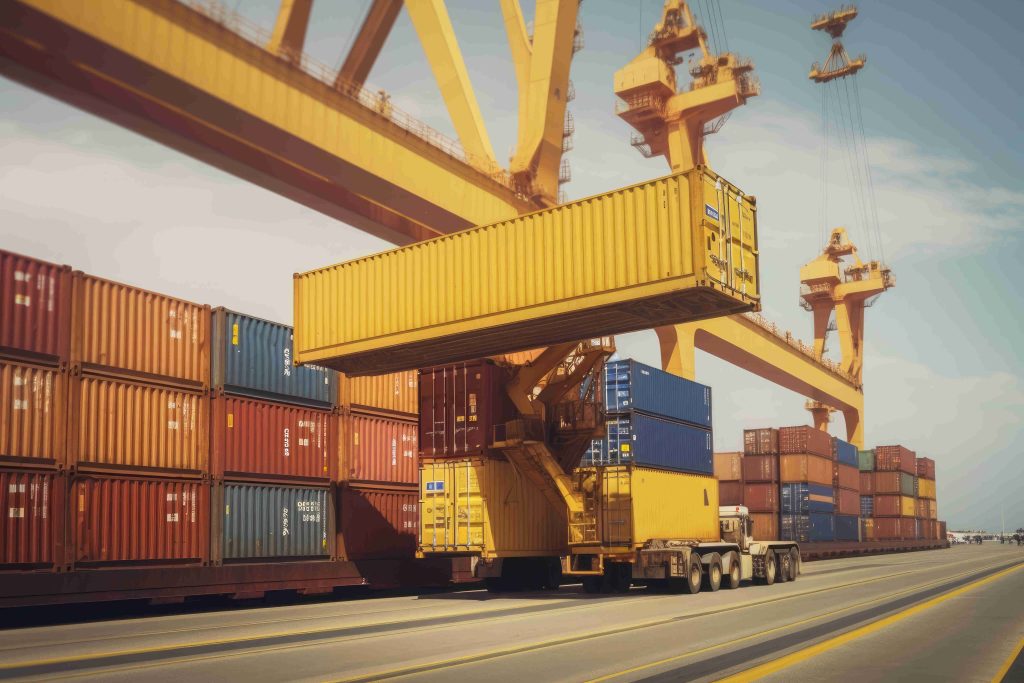
Firearms and Weapons Regulations
The UAE enforces strict controls on the import, export, and possession of firearms, ammunition, and weapons to ensure national security and public safety. The importation of firearms, ammunition, or any related equipment is heavily regulated, requiring special permits from the Ministry of Interior and other relevant authorities. The following are prohibited without explicit authorization:
- Firearms (including handguns, rifles, and shotguns)
- Ammunition and firearm accessories
- Explosives and military-grade equipment
- Knives, switchblades, and sharp objects deemed dangerous
- Tasers and stun guns
Weapons such as hunting knives, bows, and air rifles may be allowed under certain conditions but still require permits. The UAE also bans the import of items that resemble weapons, such as toy guns and replica firearms, unless they are clearly marked as toys and meet safety standards.
Violations of firearms and weapons regulations can result in heavy fines, imprisonment, and the confiscation of items. Given the potential penalties, it is essential for individuals and businesses dealing with such goods to obtain proper authorization and stay updated on the latest regulations.
Drugs and Medications
The UAE maintains stringent regulations on the import and possession of drugs and prescription medications to prevent abuse and ensure public safety. The importation of controlled substances, including narcotics, sedatives, and certain prescription medications, is highly restricted, with penalties for violations ranging from fines to imprisonment. Travelers and importers must adhere to the following guidelines:
- Narcotics and controlled substances: The UAE has a zero-tolerance policy for illegal drugs, and possession, even in small amounts, can result in severe penalties, including long-term imprisonment or deportation.
- Prescription medications: Some medications that are common elsewhere may contain ingredients classified as controlled substances in the UAE (e.g., codeine, diazepam). Importing these medications without a valid prescription from a UAE-licensed physician or a notarized prescription from abroad is prohibited.
- Over-the-counter medications: Even certain over-the-counter drugs are regulated. Travelers should verify that the medications they bring into the UAE are allowed and obtain the necessary medical documentation if needed.
Before bringing any medications into the UAE, it is essential to check the Ministry of Health and Prevention’s guidelines to ensure compliance.
Tobacco and Alcohol
The import and sale of tobacco and alcohol in the UAE are subject to strict regulations, mainly to control consumption and ensure public health and safety. These products are heavily taxed and regulated, with specific rules for importation and personal use:
- Tobacco products: The UAE imposes high taxes on tobacco products, including cigarettes and shisha. It is illegal to import counterfeit or non-compliant tobacco products that do not meet health and safety standards. Tobacco products must bear health warnings in line with UAE law, and failure to comply can result in fines and confiscation.
- Alcohol: Alcohol importation is only allowed for licensed businesses. Residents can legally purchase alcohol for personal use through licensed distributors, but public consumption of alcohol is strictly regulated. Travelers are allowed to bring a limited quantity of alcohol into the country (usually 4 liters or less), but selling or distributing it without a license is illegal.
- Vaping and e-cigarettes: These products are also subject to similar regulations as tobacco and must meet specific labeling and health requirements.
Violating tobacco and alcohol import regulations can result in fines, confiscation of products, and potential legal action.
Money and Financial Transactions
The UAE has implemented strict rules regarding the import and export of cash and financial instruments to combat money laundering, terrorism financing, and other financial crimes. Travelers and businesses must comply with the following regulations:
- Cash limits: Any individual entering or exiting the UAE with more than AED 60,000 (or equivalent in foreign currency) in cash or financial instruments, such as traveler’s checks or bearer bonds, must declare it to customs. Failure to declare can result in fines and confiscation of funds.
- Anti-money laundering (AML) regulations: The UAE has rigorous anti-money laundering laws in place, and businesses involved in financial transactions, such as remittances or currency exchange, must comply with strict reporting and documentation requirements. Non-compliance with these regulations can lead to severe penalties, including license revocation, hefty fines, and legal consequences.
- Cryptocurrency: The trade and transfer of cryptocurrencies are subject to specific regulations, and individuals involved in the crypto space should ensure they are compliant with UAE laws.
Travelers and businesses are advised to declare any large sums of money and stay informed on UAE financial regulations to avoid penalties.
Construction Building Materials and Prefabricated Buildings
The UAE has established specific regulations governing the importation of construction materials and prefabricated buildings to ensure the safety and quality of structures within the country. Some items are banned, while others require stringent safety certification:
- Prohibited materials: Hazardous or environmentally damaging materials such as asbestos, which is banned in all forms due to its health risks, and materials containing high levels of pollutants like lead are not permitted for import.
- Certified building materials: Construction materials such as steel, cement, and timber must meet the UAE’s strict quality and safety standards. All materials must be certified by relevant authorities, ensuring they adhere to specifications for safety, fire resistance, and structural integrity.
- Prefabricated buildings: Prefabricated structures must also meet specific safety and environmental guidelines before they are allowed for import and installation. The use of low-quality or unsafe prefabricated buildings is prohibited.
Violating regulations regarding construction materials can result in penalties, including the rejection of imported goods and fines. It is crucial for importers to work closely with UAE authorities to ensure compliance.
Export Restrictions in the UAE
The UAE has implemented a comprehensive regulatory framework to control the export of various goods, focusing on national security, public health, environmental protection, and international compliance. Export restrictions apply to several categories of goods, including dual-use items, tobacco, endangered species, and other banned products. Businesses involved in the export industry must adhere to these rules to avoid penalties and ensure compliance with international trade standards.
Dual-Use Items
Dual-use items refer to products, software, and technologies that have both civilian and military applications. The UAE closely regulates the export of such items to prevent them from being used for illegal purposes or in ways that could threaten national security. These items include, but are not limited to:
- High-tech electronics (e.g., GPS systems, encryption technologies)
- Aircraft components
- Chemicals that could be used in the development of weapons
- Machinery and tools that could have military applications
To export dual-use items, companies must obtain special export licenses from the UAE government and ensure compliance with international export control regimes, such as the Wassenaar Arrangement and the Nuclear Suppliers Group. Exporters should also verify whether the recipient country is under any arms embargo or restriction, as exporting to sanctioned destinations can result in severe penalties.
Tobacco and Extracts
The export of tobacco and related extracts is tightly regulated in the UAE, in line with global efforts to control tobacco trade and consumption. Specific restrictions include:
- Raw tobacco and extracts: Exporting raw or unprocessed tobacco, including extracts used in cigarettes and shisha, requires a special export permit.
- Tobacco products: Tobacco products must adhere to international health standards and bear the necessary health warnings on packaging. Any violation of these standards may result in rejection of the export permit or confiscation of goods.
- E-cigarettes and vaping products: E-cigarettes, vaping liquids, and associated components are also subject to export regulations. The UAE monitors these products closely to ensure that they meet international safety and quality standards.
Exporters of tobacco products are required to stay informed about the recipient countries’ import regulations, as some countries have outright bans or strict restrictions on certain tobacco products.
Endangered Species
As a signatory to the Convention on International Trade in Endangered Species of Wild Fauna and Flora (CITES), the UAE enforces strict regulations on the export of endangered species and products derived from them. These include:
- Live animals and plants: The export of live animals or plants listed under CITES Appendices I, II, or III is strictly prohibited unless it is for scientific or conservation purposes and approved by the relevant authorities.
- Animal products: Products derived from endangered species, such as ivory, rhino horns, and certain exotic leathers, are banned from export. Even products that resemble or are made to mimic endangered species products are subject to scrutiny.
- Illegal wildlife trade: The UAE is actively combating illegal wildlife trade, and businesses involved in the export of wildlife products must comply with national and international regulations.
Additional Prohibited Items for Import/Export
The UAE enforces a detailed list of banned items in addition to general import and export restrictions. Compliance with these regulations is essential to avoid severe penalties. Below is an updated list of prohibited items:
Controlled and Recreational Drugs
The UAE has zero tolerance for controlled and recreational substances. The import or export of drugs such as:
- Hashish
- Cocaine
- Heroin
- Poppy seeds (due to their connection to opiates)
- Hallucinogens (e.g., MDMA, LSD)
- Amphetamines (e.g., Adderall, methamphetamine)
- Barbiturates (e.g., phenobarbital)
- Benzodiazepines (e.g., Valium, Xanax) without a proper prescription
- Cannabis and its derivatives (e.g., marijuana, THC oil)
- Fentanyl and other synthetic opioids
- Ketamine
- Tramadol (unless prescribed with strict conditions)
- Morphine and other strong opioids (unless prescribed)
- Psilocybin mushrooms (magic mushrooms)
These substances are strictly forbidden. Violations can lead to severe legal consequences, including imprisonment.
Embargoed/Boycotted Goods
Any attempt to import goods from countries under UAE embargoes or boycotts is illegal. This includes any form of trade with sanctioned nations. Importing goods from these regions is prohibited unless special government exemptions are granted.
Ivory and Rhinoceros Horn Products
To protect endangered species, the UAE bans the trade of ivory, rhinoceros horn, and any derivatives thereof. Strict compliance with these conservation laws is required, as the UAE is a signatory to the CITES convention.
Gambling Equipment
The UAE prohibits the import and export of all gambling-related items, including:
- Slot machines
- Gambling tables
- Gaming equipment
These items violate the country’s laws on gambling and are banned without exception.
Three-Layer Fishing Nets
To safeguard marine ecosystems, the trade of three-layer fishing nets, commonly associated with illegal and unsustainable fishing, is banned. This regulation aims to protect marine life and promote environmental conservation.
Original Artworks and Sculptures
The import or export of original works, including engravings, lithographs, sculptures, and statues, may be restricted based on their cultural or historical value. Special permits are often required for items with cultural significance to ensure proper documentation and preservation.
Used Tires
For road safety reasons, the UAE prohibits the trade of used, reconditioned, or inlaid tires. This measure prevents the import of substandard products and ensures compliance with safety standards for vehicles.
Radioactive Materials
The import or export of radioactive or radiation-contaminated materials is banned due to the risks posed to public health and safety. Strict regulations govern any trade in hazardous materials.
Culturally Inappropriate Publications and Art
The UAE restricts the import or export of printed publications, paintings, photographs, and other artworks that are deemed offensive or contradictory to Islamic values and cultural sensitivities. This includes materials that challenge public decency or religious beliefs.
Forged Currency
The trade of counterfeit or forged currency, including fake banknotes and coins, is strictly prohibited. The UAE enforces this ban to protect the integrity of its financial systems and prevent fraud.
Cooked and Homemade Foods
Importing or exporting homemade or cooked foods is generally prohibited to protect public health. This includes perishable items and prepared meals unless they meet specific health and safety guidelines.
Pirated Goods
The UAE has strict intellectual property laws. Importing or exporting pirated content, such as unauthorized copies of movies, music, software, and counterfeit goods, is illegal. These regulations aim to protect creators’ rights and prevent intellectual property theft.
Items Linked to Sorcery
The trade of objects used for black magic, witchcraft, or sorcery, including:
- Talismans
- Potions
- Occult items
These items are prohibited due to their contradiction to cultural and religious beliefs in the UAE.
Endangered Animals and Restricted Dog Breeds
The UAE enforces stringent laws to protect biodiversity. Importing or exporting exotic, protected, or endangered species, as well as restricted dog breeds, is tightly controlled. This includes animals listed under the CITES agreement and any species considered vulnerable.
In the UAE, several dog breeds are restricted or banned from importation due to concerns over aggression, safety, or public health. The following dog breeds are typically included in the restricted list:
- Pit Bull Terrier
- American Staffordshire Terrier
- Staffordshire Bull Terrier
- American Bulldog
- Rottweiler
- Doberman Pinscher
- Japanese Tosa
- Argentine Dogo (Dogo Argentino)
- Fila Brasileiro (Brazilian Mastiff)
- Presa Canario
- Wolf-dog hybrids
Betel Leaves (Paan)
The UAE bans the import and export of betel leaves (paan), which are often chewed for their mild stimulant effects. This restriction is due to health risks and cultural concerns.
Exporters must obtain necessary CITES permits and provide documentation to prove the legal sourcing of the animals or plants. Violating these export restrictions can result in severe penalties, including fines, imprisonment, and the confiscation of goods.
Temporary Bans and Suspensions (2024)
- Temporary Suspension of Exports of Ferrous Scrap & Waste Paper (Customs Notice No. 05/2023 & 08/2022)
- Temporary Suspension of Importing and Registering Electric Volkswagen Cars (Customs Notice No. 2/2023)
- Temporary Suspension of Export and Re-Export of Wheat and Wheat Flour (Customs Notice No. 12/2022)
- Temporary Suspension of Exports of Iron Scrap and Waste Paper (Customs Notice No. 07/2022)
Navigating Future Import and Export Restrictions
To avoid penalties and ensure compliance with UAE customs laws, importers and exporters must stay informed about prohibited items and temporary suspensions. Consulting with customs authorities and monitoring regulatory updates is essential for navigating these restrictions effectively.
Looking ahead to 2025, it is anticipated that the UAE may extend or introduce temporary bans similar to those of previous years. For instance, the ongoing bans on the export of ferrous scrap metals, which have been periodically extended, may continue to support domestic industries and maintain local steel production capacity. Recent extensions have lasted up to six months, highlighting the government’s commitment to bolstering the local steel sector.
If you’re looking to export or import items to the UAE and find navigating restricted and prohibited items challenging, Cargoline is here to assist. With over two decades of experience in handling highly regulated imports and exports, we specialize in creating accurate bills of lading and managing all import documentation at ports worldwide. Our expert team in customs clearance and brokerage services is dedicated to ensuring your compliance while saving you time and money.
Get in touch with our team to find out more. We look forward to collaborating with you.
